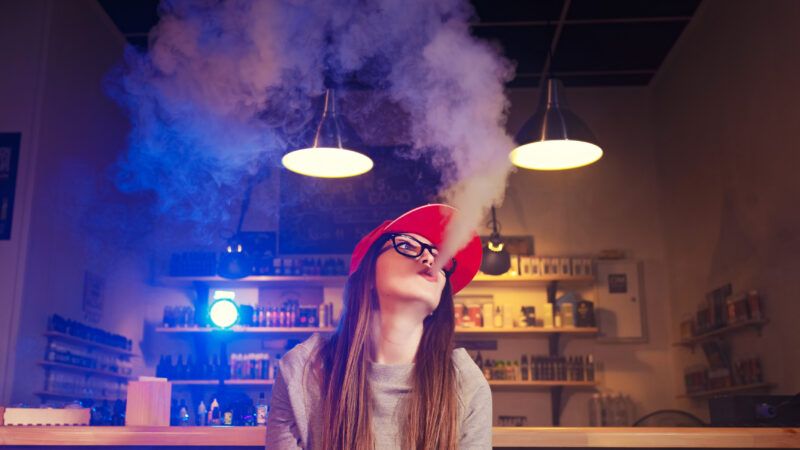Two More California Cities Preparing To Ban Flavored Tobacco and Vape Products
After San Francisco approved a similar ban, teen smoking rates increased.

After San Francisco banned adults from purchasing flavored tobacco and vaping products in 2018, a funny thing happened. Teen smoking rates increased.
Now, two other major California cities are considering similar bans. Like San Francisco's, the proposed measures in Los Angeles and San Jose are backed by vocal advocates who argue that candy- and fruit-flavored electronic cigarettes and tobacco products (which minors are already prohibited from legally purchasing) are tempting kids to get addicted to nicotine. "The tobacco industry continues to lure kids with flavored products, and today's young people are the next generation of smokers," John Maa, a board member of the American Heart Association, told the San José Spotlight in June, when the ban was first brought before the city council.
The city council in San Jose is set to consider the ban sometime this month after postponing a planned vote in June. Meanwhile, Los Angeles is drafting its own flavor ban ordinance, and it will likely be brought before the city council before the end of the month.
Like San Francisco's, the proposed bans in Los Angeles and San Jose are likely to have perverse, unintended consequences.
Increased youth smoking is only the most ironic of those outcomes. "San Francisco's flavor ban was associated with more than doubled odds of recent smoking among underage high school students relative to concurrent changes in other districts," concluded Abigail S. Friedman, a researcher at the Yale School of Public Health, in a paper published in 2019. Friedman looked at smoking rates across several large American cities, most of which had not recently implemented a ban on flavored tobacco and vaping products. The divergence in teen smoking that occurred after the 2018 ban, she wrote, "raises concerns that reducing access to flavored electronic nicotine delivery systems may motivate youths who would otherwise vape to substitute smoking."
It would affect more than just teens. A different study, published in July in Nicotine & Tobacco Research, an academic publication, found that one-third of U.S. vapers aged 18–34 would switch to smoking if "vape product sales were restricted to tobacco flavors." Researchers surveyed more than 2,100 young adults in six major cities.
But if these bans nudge nonsmokers toward making less healthy choices, at least they also make it harder for smokers to make less dangerous choices too.
Vaping is an especially powerful anti-smoking tool because it so closely simulates the act of smoking without as serious of health concerns, as even longtime anti-smoking advocates like Michael Siegel, who spent two years running the Centers for Disease Control and Prevention's Office on Smoking and Health, have recently admitted. Banning adults from being able to purchase more attractive and flavorful cigarette alternatives is only going to make that switch more difficult.
Leave all the game theory aside about how a policy change might cause people to change their behavior, and you're still left with the outright paternalism of these bans. Adults should be free to choose to engage in potentially unhealthy behavior as long as they're not hurting anyone else. Vapes filled with "unicorn fluff" are simply not a public health issue that requires government action.
All that might be insufficient to stop officials in two of California's biggest cities. Logic, it seems, is going up in a cloud of smoke.


Show Comments (126)